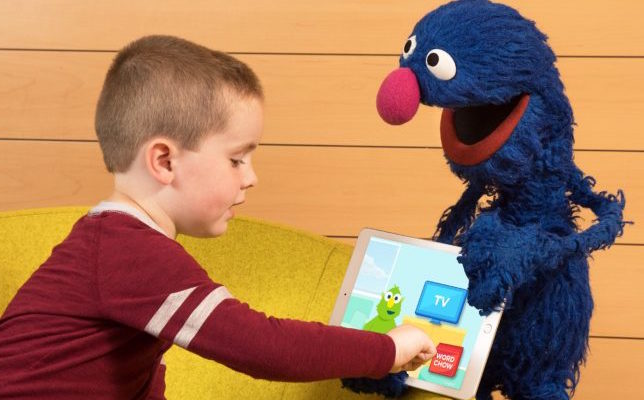Georgia District Pilots IBM and Sesame Street AI-Powered Vocabulary App

Image: Sesame Workshop.
The largest public school system in Georgia and one of the top urban school districts in the United States recently wrapped up a pilot program for the first educational app to blend IBM Watson’s cognitive computing platform with nonprofit Sesame Workshop’s research-based content.
Over a two-week period, six kindergarten classrooms in Gwinnett County Public Schools (GCPS) piloted a vocabulary learning app built on the IBM and Sesame Street Intelligent Play and Learning Platform, according to the announcement. The tablet-based Vocabulary Learning App offers games and videos featuring characters from the long-running children’s television program Sesame Street. It is powered by IBM Cloud, so it uses Watson’s natural language processing, pattern recognition and other artificial intelligence technologies to gauge a student’s vocabulary comprehension and adjust lessons accordingly. Furthermore, teachers have access to a dashboard to monitor curriculum and pacing in real time for each student.
“IBM and Watson collected 18,000 feedback points from 120 students,” and found that some students were able to retain vocabulary words that are typically thought to be challenging for kindergarteners through the app, like “arachnid” or “camouflage,” the announcement said.
“I love that [students] are learning at their own rate of speed, they are getting new words as rewards, and I love seeing them use [those words] outside of the app,” said Shon Hardy, a teacher at GCPS, in a video preview of the app.
Gwinnett County Public Schools is the largest district in the state of Georgia, with 139 schools and more than 178,000 students. The district won the prestigious Broad Prize for Urban Education twice, in 2010 and 2014, and earned recognition from the National Council on Teacher Quality as an “Outstanding Great District for Great Teachers.” Now, GCPS is the first district ever to have teachers and students test IBM Watson-Sesame Workshop content in the classroom.
IBM Watson first partnered with Sesame Workshop last year to create personalized learning experiences for classrooms. The cognitive vocabulary app is just one of many cognitive tools, games and more resources that will be built on the platform. All resources will be available on IBM Cloud for implementation is schools globally.
The companies plan to expand the pilot program this fall to more schools before making the app available to the public.
About the Author
Sri Ravipati is Web producer for THE Journal and Campus Technology. She can be reached at [email protected].